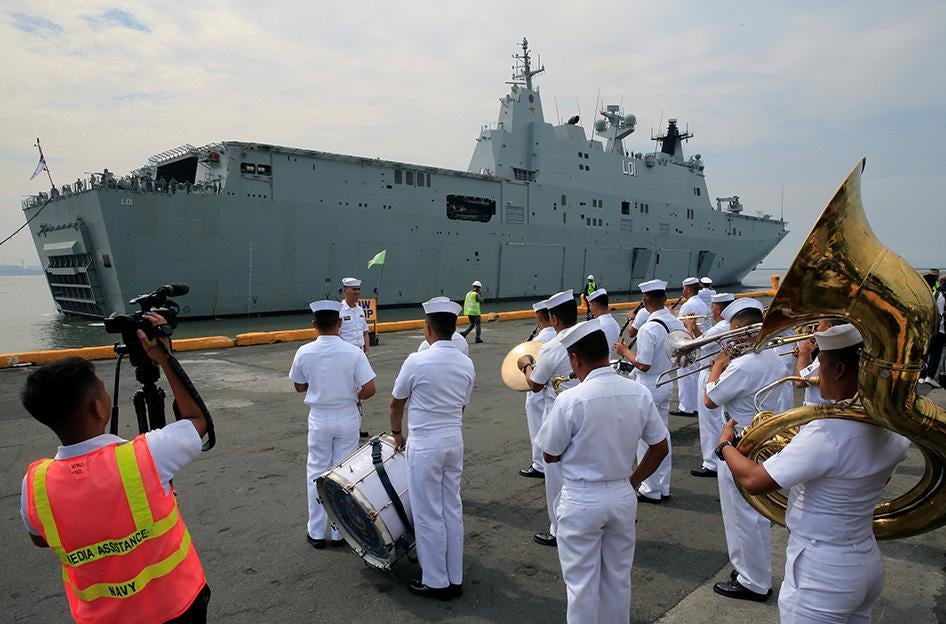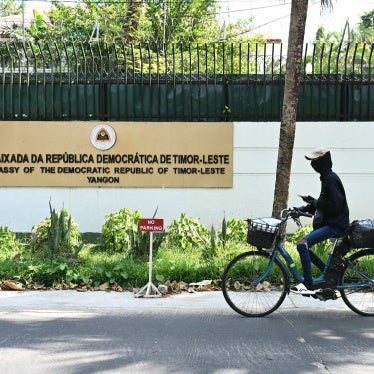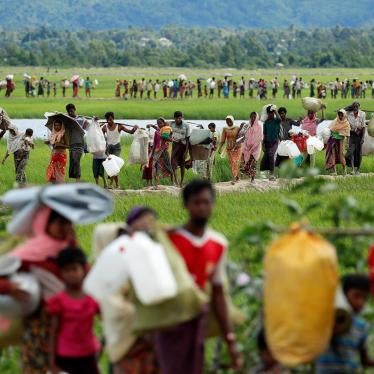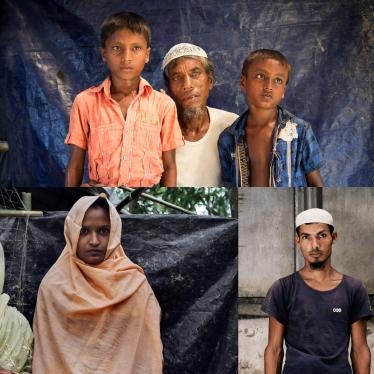(Sydney) – The Australian government should require human rights vetting for all foreign military personnel who receive Australian training, Human Rights Watch said today in a letter to Defence Minister Christopher Pyne. The government should adopt a law or regulations that would prohibit training and other assistance to foreign military units and personnel who have been responsible for serious rights violations.
“Australia’s cooperation with often-abusive foreign armed forces means that human rights vetting is crucial for any training of foreign military officers and soldiers,” said Elaine Pearson, Australia director. “Foreign forces seeking Australian support should be compelled to deter abuses and hold violators to account.”
In October 2018, Australia’s Department of Defence acknowledged that it does not vet Myanmar military personnel taking part in its training activities, despite the Myanmar military’s long history of war crimes and other abuses.
A recent United Nations report detailed crimes against humanity, war crimes, and possible genocide by Myanmar’s security forces against ethnic Rohingya in Rakhine State. The report found that the actions of the Myanmar military “so seriously violated international law that any engagement in any form with the Tatmadaw [military], its current leadership, and its businesses, is indefensible.” Since the report, the Australian government has imposed targeted financial sanctions and travel bans against five Myanmar military officers for human rights violations committed by units under their command.
Human Rights Watch urged the Australian government to examine the “Leahy Law,” as it is known, in the United States. The law prohibits the US government from using funds for assistance to units of foreign security forces if credible information implicates that unit in committing gross human rights violations.
Australia’s training for the Myanmar military is limited to cooperation in non-combat areas, providing training in relation to humanitarian assistance and disaster relief, peacekeeping, and in the English language. However, any military training bestows legitimacy on those who receive it and the Australian government should avoid legitimizing forces involved in widespread and systematic human rights violations.
“Targeted sanctions are an important first step, but we know it’s not just the five Myanmar officers sanctioned by Australia who are responsible for atrocities against the Rohingya,” Pearson said. “Human rights training can only be effective if combined with a will to hold forces accountable. Soldiers who commit murder and rape know it’s wrong, but also know they can get away with it.”









